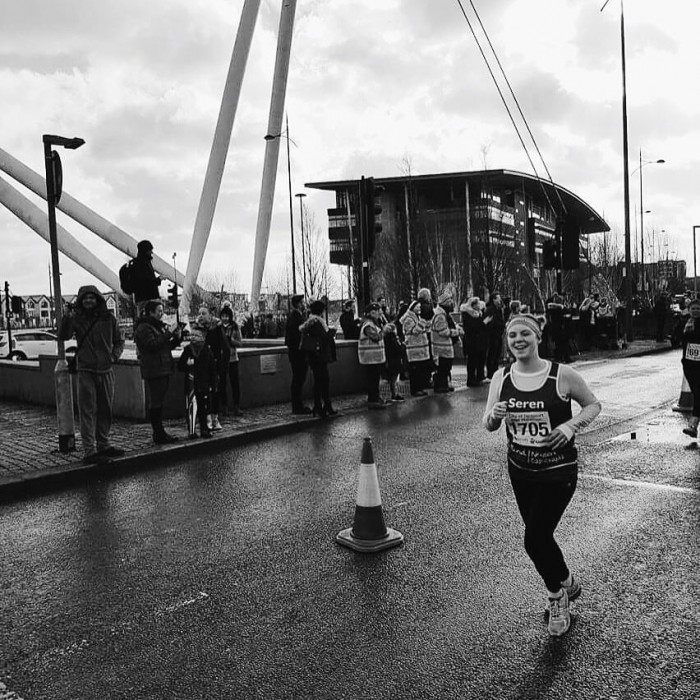Joe & Rosie’s Strength Challenge: What you need to know
Are you looking to build strength and confidence? This is for you.
Get an annual subscription to The Body Coach app for just £69.99 (usually £89.99)

How do you feel after a workout? Even when you're purple faced and desperate for a lie-down, you feel pretty pleased with yourself for giving it a go, right? Once the initial breathlessness subsides after a workout, it's common to feel like you have more energy and those troublesome problems might not seem quite so big as before. While they might seem intangible these benefits are as real as - and arguably more important than - the results you see around your waistline.
"A prescription of exercise can help you have a healthy mind," says GP Dr Paul Stillman, from Media Medics. "Exercise stimulates positive endorphins, clears your head and lifts your mood. I think we'll see more and more people prescribed exercise as a mood-booster."
Healthy body = healthy mind
We're starting to realise just how vital exercise is for our wellbeing, both mental and physical. New research from the Department of Health published in October 2017, reported 12% of cases of depression could be prevented with an hour of exercise each week. Up your workouts to three a week and you could reduce your risk of depression by 30%.
Can exercise help you handle stress?
Sure thing. A team of neurologists at Stanford Medical School, U.S., studied brain scans and found regular exercisers have more grey matter in the prefrontal cortex, which governs stress-management.
But when we feel down, everything can feel overwhelming. Time to crawl into a hole? In fact, the more stressed out you feel, the more you need to look after yourself - and a workout can be the happiest medicine. Research has shown that exercise is clinically proven to stimulate serotonin, your natural feel-good neurotransmitter.
Does exercise help anxiety?
"Running gives me the headspace to focus on what I'm feeling when my anxiety gets really bad," says Cardiff student Seren Pritchard-Bland, 21, who ran the London Marathon for the mental health charity Heads Together. "I get panic attacks when I'm stressed out, but I find simply getting out of the house with my trainers on makes me feel like I've achieve something positive. Running is therapeutic - it's so much healthier than being alone at home with thoughts spinning around my head."

Why is exercise such a mood-booster?
"Exercise is fantastic for releasing tension, reducing stress and giving joy," says Hayley Jarvis, programme manager for sport at the mental health charity Mind. "Being active is one of the best things you can do to help yourself bounce back in times of adversity. Getting out of your head and into your body can actually improve your ability to think clearly and break up your racing thoughts."
Find your mood-boosting workout
If the thought of hauling yourself out of bed to jump around feels as impossible as climbing Everest, start slow. You can always stop if you're not feeling it, but all it takes is a few minutes of low-intensity exercise - even just walking - to trigger the release of pain-relieving endorphins. Every stretch releases tension and every movement makes oxygen flow a little faster. Look out for your tipping point, because the more aware you are of the moment your mood warms up, the better it feels.
Which workout will make you happy?
To build friendships: try team sports like football and netball. "Social connectivity is incredibly important," says Hayley. "When we're struggling we tend to isolate ourselves, but being with other people can motivate you to get out there. Playing team sports is great if you feel lonely."
To calm your mind: try yoga, pilates and t'ai chi. Hayley explains: "Exercise that works with your breath is particularly good for improving mindfulness, which can also calm a spinning head and improve your mood." Click here to try Joe's yoga with Shona Virtue.
To release tension: try boxing or HIIT. "Doing an intense exercise will completely absorb your attention - it's impossible to think of anything but what your body is doing," says Hayley. Click here to try one of Joe's latest HIIT workouts.
Ultimately, the key is to find a workout you enjoy, because then you'll want to keep doing it. After exercise, take a moment to notice how your mood has lifted. The bright, calm satisfaction you get after your workout will keep you coming back for more. You'll get hooked on the feel-good benefits of exercise, not just the physical results.